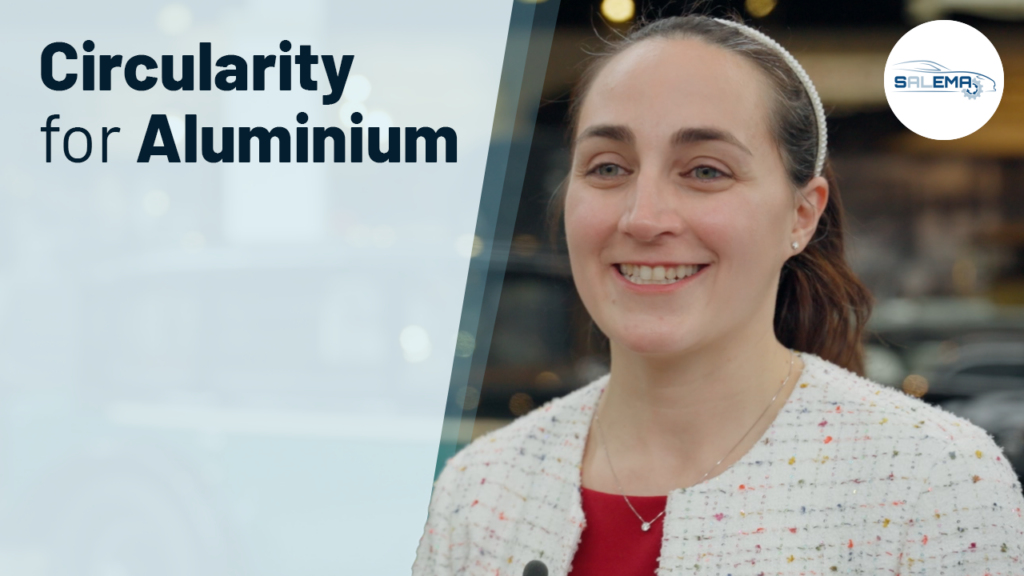
Short interview: Benedetta Nucci, European Aluminium
Benedetta Nucci is Senior Manager Mobility & Life Cycle Assessment with European Aluminium. On 21 March 2024 she moderated our final event session on circularity in aluminium to help make the automotive sector more sustainable.
With her background in environmental management and footprinting as well as lifecycle assessment, as well as experience as a policy officer with the EC, we asked her views about what the project achieved.
What SALEMA results excite you most?
Do you think projects like SALEMA are important?
It’s fundamental, though, to have some help. And here, European funds play a pivotal role, especially when small and medium-sized companies are in the loop. We can foster these partnerships and contribute to increased collaboration along the value chain.
See the quickfire interview video
See Benedetta in SALEMA’s final event
How could policy support the outcomes of SALEMA?
The SALEMA project, in the end, was promoting a circular business model. It was testing one and promoting it. And what we need to have for a circular business model to be viable in the industrial ecosystem, is a well thought out and stable legal framework.
So that’s the main role that a revised End-of-Life Directive should play, to give certainty and clarity to the different operators on how a circular business model in the automotive sector could be implemented. The End-of-Life Vehicles Directive, in its revision, actually would not only target the end-of-life treatment of vehicles, but will also give specifications on how cars should be designed in order to be sustainable. So actually, the name will change, to be regulation for the circularity of vehicles. It’s a fundamental that, from the beginning, we’re thinking about what will happen, being the re-use of components and/or the recycling of materials at the end of life.
What SALEMA achievements are significant for the future of aluminium?
I think they achieved all the all the objectives that were set at the beginning, in terms of reducing critical raw materials in the alloys, and also producing alloys with the same quality as those made with primary materials, but using recycled metal.